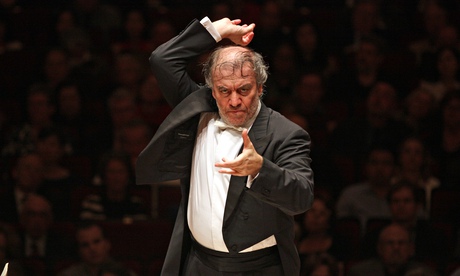
The LSO opened its last season under Valery Gergiev doing what they do best together: Russian music. First, a rarity: the Dante Symphony No 1 by Boris Tishchenko, written in 1998 as the first of five pieces telling the story of the Divine Comedy. Tishchenko was a pupil of Shostakovich, and his influence was clear in the lonely string lines, which brought some yearning solos from lead violinist Roman Simovic. The five symphonies have never been danced end to end as a ballet, as Tishchenko envisaged. But there were moments here, especially in the loping music for bass clarinet and saxophone painting Dante’s political opponents in all their grotesque glory, when this defiantly un-modernist music seemed to cry out for dance, or at least for something visual to accompany.
In Prokofiev’s Piano Concerto No 3, the limelight was hogged by pianist Denis Matsuev. There wasn’t much give and take; everything was crisply, coolly dazzling. The glissandos sliding up and down the keyboard in the final movement were dispatched with the nonchalance of a haberdasher testing the pile on a bolt of velvet. And it’s hard to imagine the outer movements being played any faster. But the melodies got lost in the scrum, at times reducing the piece to a series of harmonies. Still, there are plenty of concertos where this approach would do a lot worse. Matsuev’s encore, Sibelius’s Etude Op 76 No 2, was almost anticlimactic in its calming effect.
Shostakovich’s Tenth Symphony threw the spotlight in turn on to a dozen outstanding solo players in the LSO’s wind and brass. Gergiev’s ability to pace and sustain the long climaxes in this composer’s symphonies remains exemplary, and the second movement went at a brutal, exhilarating gallop. Only in the final movement, with all its high-speed vamping, was there the feeling that anything was less than secure, but by then the symphony already had its considerable impact in the bag.
• The LSO, Gergiev and Matsuev are in concert at the Barbican on 23 September.

